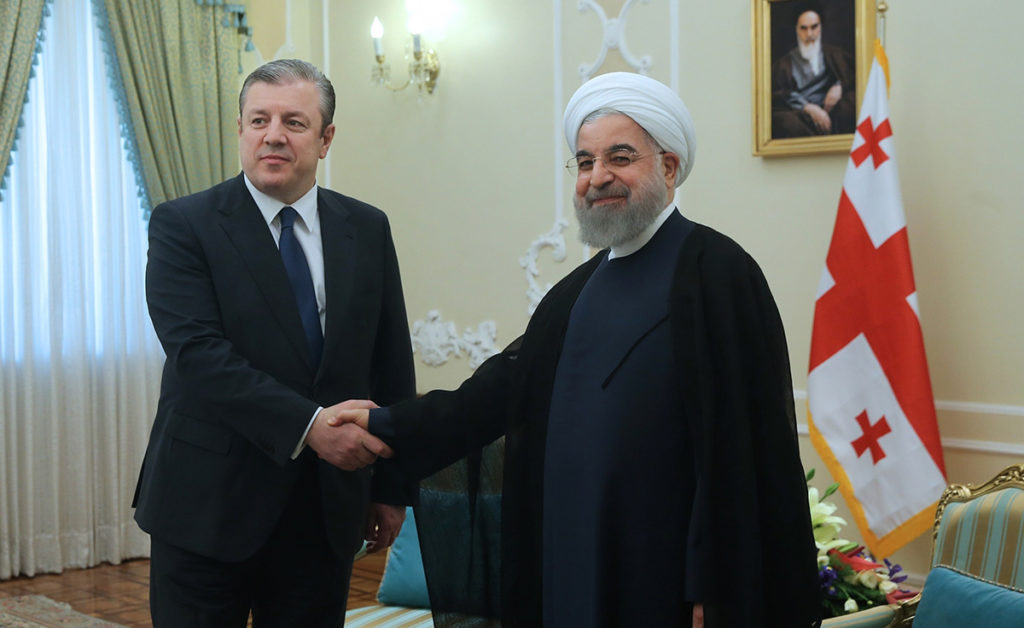The European Union is taking steps to protect EU companies investing in Iran from renewed American sanctions on Tehran after US President Donald Trump decided to unilaterally withdraw from the Iran nuclear deal late last month.
The European Commission said it has adopted an update of the Blocking Statute and of the European Investment Bank’s External Lending Mandate. The move follows up on the informal Leaders’ Meeting in Sofia, as well as the commission’s announcements of May 18, reads an article published by Brussels-based weekly newspaper New Europe on Monday. Excerpts follow:
“These measures are meant to help protecting the interests of EU companies investing in Iran and to demonstrate the EU’s commitment to the Joint Comprehensive Plan of Action,” the commission said in a press release.
Since the original international sanctions were lifted in January 2016 after the deal on Iran’s nuclear program, Tehran has sought foreign investment to help the Islamic Republic raise its oil production to above 4 million barrels per day by upgrading its eroding infrastructure and help finance new projects in the oil and gas sector.
Iran ranks second in the world in natural gas reserves and fourth in proven crude oil reserves.
“Through the update of the Blocking Statute, the extraterritorial sanctions that the United States will reimpose on Iran are added to its scope, while the update of the EIB’s External Lending Mandate would make Iran eligible for investment activities by the EIB,” the European Commission said on June 6.
The commission noted that this enabling measure does not, however, commit EIB to actually support projects in Iran as it is up to the bank’s governing bodies to decide to take up such financing activities in line with relevant rules and procedures.
Following the adoption on June 6, the European Parliament and the Council will have two months to object to these measures before they enter into force. If no objection is raised, the updated acts will be published and will enter into force at the latest at the beginning of August, by the time the first batch of reimposed US sanctions will take effect, the commission said.
“The European Union is fully committed to the continued, full and effective implementation of the JCPOA, so long as Iran also respects its obligations. At the same time, the European Union is also committed to maintaining cooperation with the United States, who remains a key partner and ally,” the commission said.
On May 8, Trump announced the United States’ decision to withdraw from JCPOA and to reinstate the US sanctions that were in force before JCPOA’s implementation, subject to certain wind-down periods.
Security Interests
According to the New York Times, in a letter sent on June 4 to US Treasury Secretary Steven Mnuchin and Secretary of State Mike Pompeo, EU leaders cited “security interests” in requesting that companies in Europe be granted an exemption from renewed US sanctions against Iran.
“In their current state, US secondary sanctions could prevent the European Union from continuing meaningful sanctions relief to Iran,” said the letter, signed by the finance and foreign ministers of Britain, France, and Germany and EU foreign policy chief, Federica Mogherini. Without that sanctions relief, Iran has threatened to pull out of the deal. That “would further unsettle a region where additional conflicts would be disastrous”, the letter read, cited by NYT. The agreement was “the best means through which we can prevent a nuclear-armed Iran” and there are “no credible alternatives at this time”.
The EU has criticized Trump’s decision to pull out of the Iran deal and have tried to work with the US State Department to find a solution for the European companies working in Iran.
Total Withdrawal
French oil major Total announced in a press release on May 16 that it would not be in a position to continue Iran’s South Pars 11 (SP11) gas development project unless Total is granted a specific project waiver by the US authorities.
Total pointed to the fact that on July 4, 2017, together with the other partner Petrochina, it executed a contract related to the SP11 project in full compliance with United Nations resolutions and US, EU and French legislation applicable at the time.
SP11 is a gas development project dedicated to the supply of domestic gas to the domestic Iranian market.
Given the announcement of new US sanctions, Total said it will not be in a position to continue the SP11 project and would have to unwind all related operations before November 4 unless Total is granted a specific project waiver by the US authorities with the support of the French and European authorities. This project waiver should include protection of Total from any secondary sanction as per US legislation.
Total cannot afford to be exposed to any secondary sanctions as US banks are involved in more than 90% of Total’s financing operations, US shareholders represent more than 30% of Total’s shareholding and US assets represent more than $10 billion of capital employed.
Total, which confirmed that its actual spending to date with respect to the SP11 contract is less than €40 million in group share, urged the French and US authorities to examine the possibility of a project waiver.
Source:https://financialtribune.com/articles/economy-business-and-markets/87874/protecting-european-companies-in-iran


